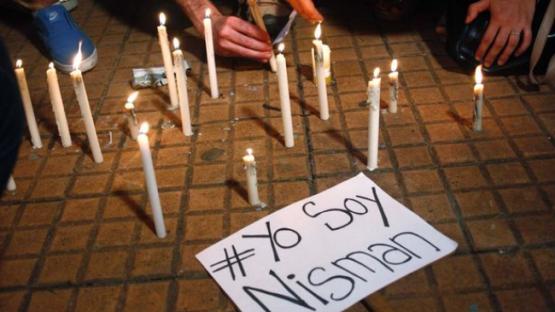In wake of prosecutor's shooting, Argentinian human rights group releases report on troubled intelligence agencies

UPDATE: Argentina's President Cristina Fernandez de Kirchner has announced plans to disband Argentina's intelligence agency. Go here for more, and keep reading below.
This post was originally published on 20 January 2015 by Privacy International's partner in Argentina, the Asociación por los Derechos Civiles (ADC). To read the original post, please go here.
In view of the serious incidents that took place on 18 January 2015, the Asociación por los Derechos Civiles (ADC) published in advance its report on how the intelligence bodies function in Argentina, "El (des) control democrático de los organismos de inteligencia en Argentina" [The (un) democratic control of the intelligence bodies in Argentina].
The full report and a summary are available for download at the bottom of this page.
Since the end of the year 2014, serious internal conflicts within the Secretariat of the intelligence were made public. These culminated into the removal of Jaime Stiusso, one of the powerful agents in the last decades. A few days ago, Argentinians woke up to the news that the prosecutor in charge of the AMIA case, was found dead the day before he was meant to testify before Congress regarding a complaint involving several political officials.
In this context, the Asociación por los Derechos Civiles (ADC) has published its report, "El (des) control democrático de los organismos de inteligencia en Argentina" [The (un) democratic control of the intelligence bodies in Argentina]. This report provides a detailed account of how the intelligence bodies function in Argentina and the serious irregularities in terms of its norms and operations this system presents.
The internal removal in the Intelligence Secretariat and the incidents regarding the AMIA case – where from the onset the Secretariat was involved in concealing rather than to clarify the at terrorist attack – presents a unique opportunity for democracy in Argentina to take action regarding the intelligence system. The intelligence is an autonomous body of states officials and parastatal which acts in the shadows, manages millions of pesos in reserved funds which are used to pay off judges and journalists and to spy on politicians, businessmen, public officials and citizens in general.
Since 1983, it is a system that has been presented as being completely autonomous but is actually an essential part of the Argentinian presidency. It serves the wishes of the President but at the same time is able to maintain its own agenda which constitutes a real threat for democracy in Argentina and the rights of citizens. The report published outlines the legal and political reasons behind the problem which can be summarised as follows:
Argentinian democracy adopted a structure of intelligence without controls and converted itself in one of the most powerful pillars of the Presidency. In addition, it developed unprofessional services dedicated to domestic spying, and the management of reserve fund for which it is accountable to no one. Finally Congress, despite affirming on several occasions the necessity to make the system more transparent and democratic, adopted inefficient laws or laws that did not function, partly as a result of the tacit agreements between the different political parties which hoped to benefit from those structures if they accessed the Presidency.
ADC intends to raise the alert on this obscure and opaque side of the State, and urges the political community to reverse this situation. It is a call for attention at a time of crisis which presents itself as an opportunity to promote reforms and significant changes to create profession and trained intelligence services, controlled by democratic institutions and dedicated to the legitimate interests of national defence and the security of the State, and not as in recent decades, for the violation of the rights of citizens and the satisfaction of the interests of information of the government.
The death of the prosecutor, Alberto Nisman, is a serious institutional incident which deserves, not only to be investigated, but placed in the context of the practices of the intelligence agencies in Argentina. We are witnessing the most public illustration of the perverse dynamic of subordination and autonomy that the intelligence services have managed to generate with the government. We therefore insist that this is an opportunistic moment to produce compelling amendments of the mechanisms of control of the intelligence systems.
The report is available for download (in Spanish):
El Descontrol de los Organismos de Inteligencia –Complete Report



